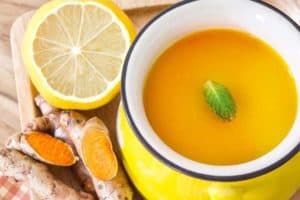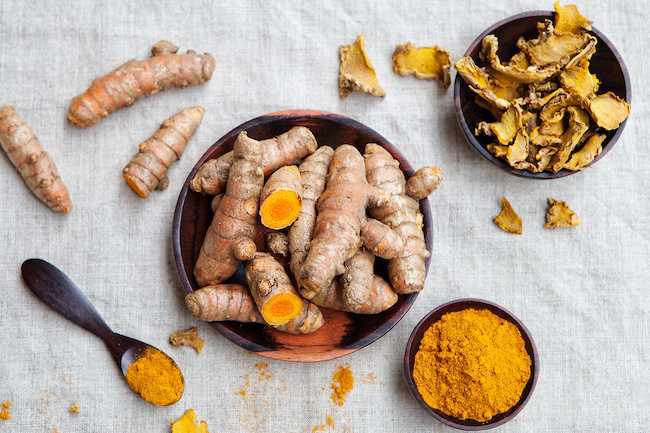Turmeric is a spice that is not only widely used in Indian food but is also our go-to home remedy for diseases. From preventing cancer to reducing cholesterol levels. This yellow root is magical
found in every Indian kitchen and has amazing health benefits? Yes, you guessed it right — turmeric! It is not only the most commonly used ingredient in our curries, but we have also been using it as a natural home remedy from time immemorial. In the last few years, it has also gained western attention, after science corroborated its medicinal properties. So much so that our humble haldi doodh has now been transformed into the turmeric latte or golden milk, as it is popularly called, that is available in cafes across the world.
Turmeric contains bioactive compounds that have powerful healing qualities. One of these is curcumin, a substance with anti-inflammatory and antioxidant properties. Curcumin boosts the activity of your body’s own antioxidant enzymes. Some studies have also revealed that it is more powerful than some anti-inflammatory drugs, sans the side effects. But the problem with curcumin is that it is not easily absorbed in the bloodstream. Here black pepper and fats might come to your rescue. Consuming black pepper with turmeric enhances the absorption of curcumin, making it an incredible combination.

This compound can also improve your memory and lower the risk of brain diseases. Recent studies have also shown how it can prevent Alzheimer’s. It has proved to be efficacious in treating depression and preventing cancer. Turmeric not just aids in prevention of diseases but it also has curative characteristics. Apart from being used for cold, headache and stomach bloating, turmeric can also be helpful in arthritis, high cholesterol, stomach ulcers, bronchitis and diabetes.
A stimulant for your immune system and a tonic for your liver, turmeric can rightly be called a magic root. Its antibacterial and anti-fungal properties make it a good antiseptic, so it can also be applied to the skin for acne, ringworm, leech bites, oral ulcers, infected wounds and skin sores. Turmeric is also becoming popular as an anti-ageing supplement. It can do wonders for the skin, which is why I add it to face packs, home scrubs and massage oils.
The most common way of consuming turmeric is by adding a teaspoon of the spice powder in a glass of warm milk. Since I have an autoimmune condition, I add turmeric and pepper to warm water with lemon, which I have regularly as healthy alternative to caffeinated drinks. I also use turmeric in salad dressings and snacks.
Turmeric tea, brewed using grated turmeric root or pure powder, is also considered an effective way of consuming it. Raw turmeric is considered the most effective. Modern research on turmeric and its main constituent, curcumin, suggests that chewing its fresh root could have positive effects on your health.
Many chefs are now experimenting with turmeric in cookies and health drinks. Turmeric latte — cold-pressed turmeric juice added to hot or iced non-dairy milk made from soy, almond or coconut — is the latest fixation in the West, making it a global health fad.
Dr Reshma is an advocate of wellness, prevention and holistic health. Instagram handle: dr.reshmakhattarbhagat





